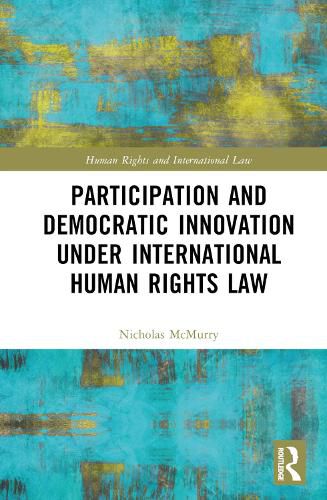Readings Newsletter
Become a Readings Member to make your shopping experience even easier.
Sign in or sign up for free!
You’re not far away from qualifying for FREE standard shipping within Australia
You’ve qualified for FREE standard shipping within Australia
The cart is loading…






This book explores the human rights principle of participation and the human right to participation. The work presents an argument that international human rights law imposes obligations to enable participation, and demonstrates that it has been interpreted in this way by authoritative bodies. Divided into four parts, Part I provides the historical and theoretical background. Part II presents the argument that a right to participation and a human rights principle of participation exist in international law and Part III argues that human rights law, and the way it has been interpreted, can provide a coherent account of the content of such a right and principle. The conclusions of the book and their implications are explored in Part IV. While there have been several studies of specific forms of participation, such as collective bargaining, this study provides a coherent account of the meaning and application of participation in international human rights law as a whole.
The book will be an invaluable resource for academics, researchers, and policy-makers working in the area of international human rights law.
$9.00 standard shipping within Australia
FREE standard shipping within Australia for orders over $100.00
Express & International shipping calculated at checkout
This book explores the human rights principle of participation and the human right to participation. The work presents an argument that international human rights law imposes obligations to enable participation, and demonstrates that it has been interpreted in this way by authoritative bodies. Divided into four parts, Part I provides the historical and theoretical background. Part II presents the argument that a right to participation and a human rights principle of participation exist in international law and Part III argues that human rights law, and the way it has been interpreted, can provide a coherent account of the content of such a right and principle. The conclusions of the book and their implications are explored in Part IV. While there have been several studies of specific forms of participation, such as collective bargaining, this study provides a coherent account of the meaning and application of participation in international human rights law as a whole.
The book will be an invaluable resource for academics, researchers, and policy-makers working in the area of international human rights law.